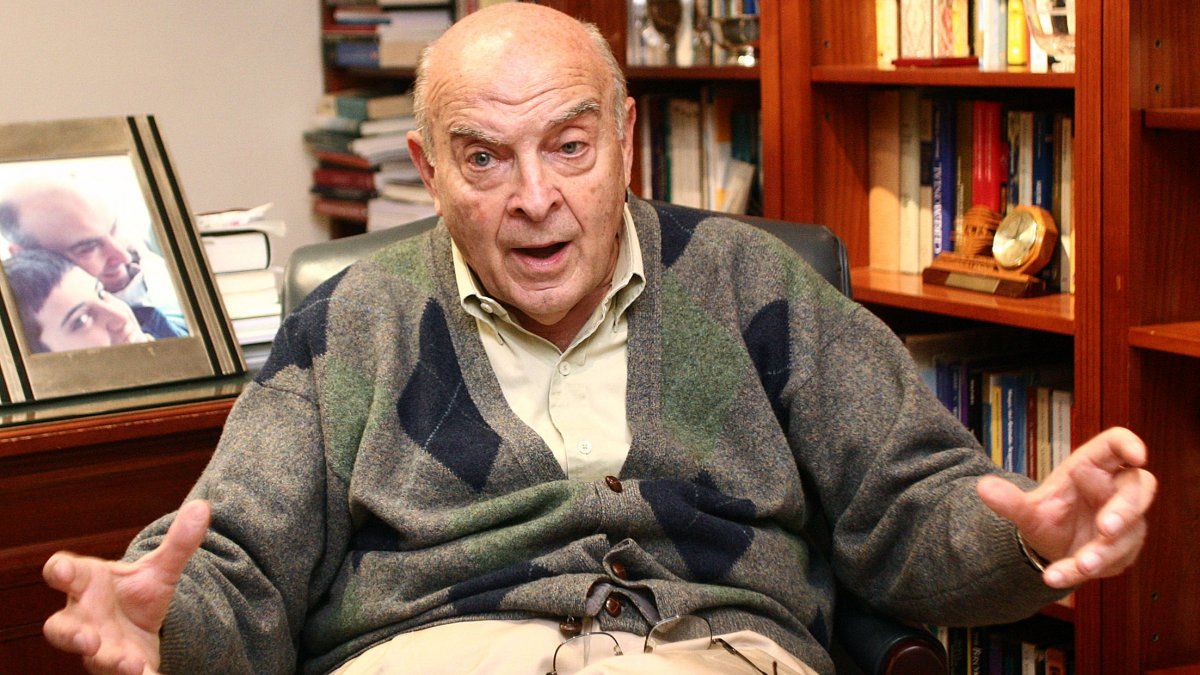The former Minister of Economy, Domingo Cavallo, expressed that to eliminate inflation the most important thing is to avoid a new exchange rate jump before it is in a position to unify and totally liberalize the exchange market. “There is a lot that the government has achieved in its first 50 days in office,” he also highlighted.
For the economist, “inflation subsided in January, but so did the real exchange rate”. In this regard, he said that it fell from 1.6 at the time of the devaluation jump on December 12 to 1.17 on January 26.
And he analyzed: “At this rate of decline it will continue throughout February, in March it could be located in a dangerous zone, announcing pressures demanding a new devaluation jump. This danger would be even greater if the increase in withholdings on exports had been approved, so beyond the problem that this decision may cause in fiscal matters, from the point of view of avoid the risk of a new devaluation jumpshe has been lucky.”
Cavallo emphasizes that, in a text he wrote on December 20, by distinguishing between the real import exchange rate and the export rate, he demonstrated that, If the increase in withholdings had been applied, these would have had to be eliminated between February and March 2024 to prevent the real export exchange rate from falling below 1the level that can be considered equilibrium in an economy without inflation and with normalized foreign trade.
What are the necessary steps to avoid a new devaluation jump?
For Cavallo, we must move towards fiscal balance without increasing distortions in relative prices. “Increasing export taxes was a bad idea and the fact that it has had to be shelved should not worry the government. The amount that could eventually have been collected in this way can be more than offset by updating the fuel tax.something that does not require legislative authorization because this update was contemplated since the creation of the tax and the previous government did not carry it out,” said the former official.
Cavallo also believes that the fiscal chapter of the law of bases and starting points (without the increase in withholdings and contemplating the monthly adjustment of retirements and pensions by the consumer price index) and the draft reform of the income tax law (more appropriate name than income tax) They must be resubmitted for prompt discussion in the Chamber of Deputies.
He also expressed that the adjustment of electricity, gas and transport prices should not be delayed to “significantly reduce subsidies by a magnitude even greater than that committed in the negotiation with the IMF.” In this way progress will be made in the correction of relative prices that were strongly distorted, in a demagogic manner, by the previous government.
He also warned that “the existence of Contracts with a term of more than 30 days that are not adjustable for inflation will constitute a problem for the drastic reduction in inflation. that must be contemplated in any stabilization plan with a chance of attracting popular support.
Consequently, in order not to have to include complex mechanisms such as the Austral plan’s relief, he said that “it is advisable encourage contracts that involve delivery of pesos over thirty days, particularly salaries, pensions and rents, to be adjusted monthlywith the smallest possible delay, by the consumer price index, by the official exchange rate, by the free exchange rate or by any other regularly published index, as agreed upon by the contracting parties.
Dollarization: the path to follow
For Domingo Cavallo, we must resume the dollarization preaching of President Milei during his electoral campaign because “it is the best way to induce expectations of an accelerated decline in inflation during the year 2024 to ensure that in 2025 there are no longer vestiges of the exchange rate and a stabilization plan capable of eradicating inflation can be implemented as achieved by the convertibility in 1991”.
From the instrumental point of view, he said that It can be from the total replacement of pesos in circulation with dollars to the Peruvian system of currency competition (the Sol, the dollar and any other currency).
For Cavallo it is important to dismiss the argument that to dollarize it is necessary to have net reserves equivalent to all the monetary liabilities of the Central Bank. In other words, “it is possible to dollarize, in the sense of giving freedom of choice of currency, when the Central Bank has achieved recover reserves equivalent to the legal reserves of dollar deposits in the banking market and is in a position to return those deposits if their holders require it”.
“It is essential that a free exchange segment be allowed to operate without any type of interference from the Central Bank. Any natural or legal person may sell or buy foreign currency. Only transactions related to exports and imports of goods will remain subject to exchange controls. These controls will be temporary and will disappear when the conditions are met for the complete unification of the exchange market,” said the former official.
Finally, he expressed that “when the gap is low enough, the exchange rate jump may occur in the controlled market necessary to achieve reunification, but this should be the last exchange rate jump decided by the Central Bank. From that moment on, exchange management will adjust to the rules of the stabilization plan that will be launched at that same moment. “This plan will necessarily begin with the formal designation of the dollar as legal tender in competition with the peso.”
Source: Ambito




